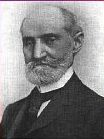Fever
Characteristic – Best adapted to persons of light hair, blue eyes, fair complexion, inclined to be fleshy.
Gastric derangements, extreme nausea and vomiting, morning sickness, spasmodic asthma, pertussis, with dyspnea threatening suffocation.
Headaches: gastric, with nausea, vomiting and great prostration, following intoxication, aggravated ameliorated afternoon until midnight, sudden pallor with profuse sweat (Tabacum), aggravated by tobacco or tobacco smoke.
Vomiting: face bathed with cold sweat, of pregnancy, profuse salivation (Lac.ac. – at night, Mercurius), chronic with good appetite, with nausea, profuse sweat and marked prostration.
Faintness, weakness and an indescribable feeling at epigastrium, from excessive use of tea or tobacco.
Urine: of a deep orange red color, copious red sediment.
Dyspnea: from constriction of middle of chest aggravated with every labor pain, seems to neutralize the pains, aggravated by exposure to cold or slightest exertion, going up or down stairs (Ipecac.).
Sensation of congestion, pressure or weight in chest as if blood from extremities was filling it, ameliorated by rapid walking.
Sensation as if heart would stand still, deep – seated pain at base (at apex, Lilium).
Sacrum: extreme sensitiveness, cannot bear the slightest touch, even of a soft pillow, sits leaning forward to avoid contact with clothes.
For the bad effects of drunkenness in people with light hair, blue or grey eyes, florid complexion, corpulent, Lobelia bears the same relation that Nux vomica does to persons of the opposite temperament.
Aggravation: Cold washing, cold bathing, cause dyspnea and increase or return of pain (Ant.c.), slight motion, touch.
Amelioration: After drinking, evening, walking rapidly ameliorated chest pain.
Type: Quotidian, remittent, continued.
Time: 10.30, 11 A.M., 12 morning.
Prodrome: Thirst (Caps., Cinchona, Eup.).
Chill: With thirst, severe, shaking, coldness, increased after drinking (Caps.), down the back with heat in stomach, general shivering alternating with flushes of heat.
Heat: With thirst, with sweat of inclination to sweat, particularly in the face, heat alternating with slight chilliness from noon till evening. Respiration short, anxious, laborious and wheezing, with tightness of the chest. Tickling in the throat pit, with frequent hacking cough, severe headache extending round the forehead from one temple to the other. Great debility.
Sweat: With heat, or after the heat has lasted some time, with sleep (Podophyllum), profuse, at night, cold.
Tongue: White or coated on the right side, clean on the left. Loss of appetite.
Pulse: Frequent, but small and weak in the evening.
Apyrexia: Attended with great debility, dyspnea and oppression at pit of stomach, with weakness and sensation as if stomach was too full, as from undigested food. Complete loss of appetite. Nausea relieved by drinking. The weak sensation in stomach may extend through whole chest or down to abdomen. The thirst is often found only during heat and prodrome and not in chill. The sweat resembles that of Podophyllum, coming on after the heat has continued for some time and is accompanied by sleep.
Analysis – Chill, with thirst, severe shaking aggravated by drinking.
Heat, short, anxious, labored breathing.
Sweat, with sleep or heat.
Nausea ameliorated by drinking.


